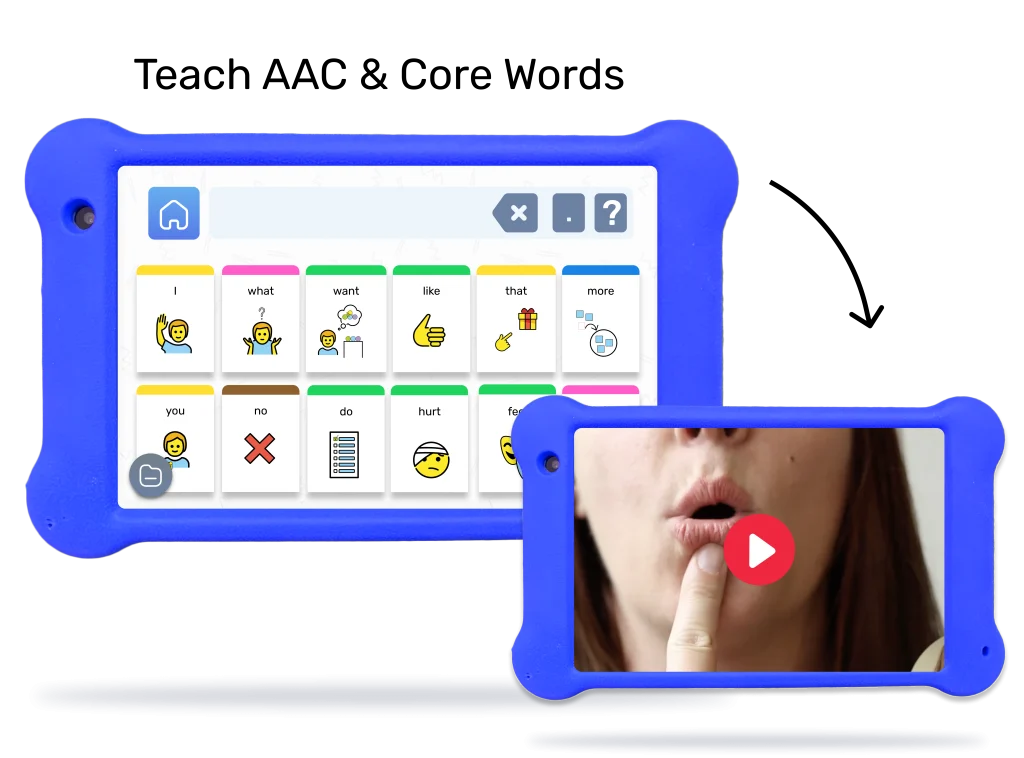As a professional who works with neurodivergent kids, I’ve seen firsthand how “Scripting” can be a common and fascinating behavior in children with autism. Can’t you picture your kids splashing around in that water park, laughing and reciting lines from their favorite movie? I know I can. Scripting is a repetitive behavior that involves repeating words, phrases, or sounds from other people’s speech. It’s a common way for people with autism to communicate, express themselves, and navigate social interactions. Scripts can come from various sources, such as movies, TV shows, books, or personal experiences. Scripting can also be used to stimulate enjoyment or help with sensory regulation.
Table of Contents
How Scripting Develops in Autistic Kids
Scripting can indicate gestalt language processing, a systematic way of developing language. Kids with autism may hear a phrase or sentence, store it in their memory, and then reproduce it as a complete unit rather than breaking it down into individual words. This allows them to communicate using language before they have fully mastered the grammar and syntax of their native language. Over time, children with autism can start to modify and expand on these scripts, using them as a foundation to build their own unique phrases and sentences.
In my experience, scripting often starts with simple phrases or lines from movies and TV shows a child has enjoyed. They may repeat these scripts during play when communicating with others or even alone. The scripts can become more complex as they age, incorporating multiple sentences or even entire paragraphs. I’ve seen kids seamlessly transition between different scripts, blending them to express their thoughts and feelings.
The Benefits of Scripting

Read more: What are social skills for kids?
While scripting may seem unusual to those who don’t have experience with autism, it can serve some essential functions for the child. Scripting can help kids with autism:
- Communicate their needs and desires when they may not have the vocabulary or language skills to express themselves in other ways.
- Engage in social interactions by having a repertoire of pre-made responses to use in different situations.
- Regulate their emotions and sensory experiences by providing a familiar and comforting way to express themselves.
- Develop their language skills as they modify and expand their scripts.
research has shown that scripting can be an important stepping stone in the language development of many children with autism. A 2018 study published in the Journal of Autism and Developmental Disorders found that children who engaged in more scripting at a young age tended to have better language skills and social communication abilities later on.
Dealing with Scripting Behaviors
As a professional who works with kids with autism, I know that scripting can sometimes be a point of frustration for parents and caregivers. It cannot be easy to converse when your child keeps repeating the same lines from a movie or TV show. However, it’s essential to approach scripting with patience and understanding. Here are some things you can consider:
Ensure Your Child is Properly Diagnosed
First and foremost, it’s crucial to make sure your child has been properly diagnosed with autism or another neurodevelopmental condition. Scripting can be a symptom of various conditions, and getting an accurate diagnosis will help you access the right support and interventions.
Maintain a Constructive and Optimistic Mindset
When dealing with scripting behaviors, feeling frustrated or discouraged is easy. But try to approach it with a constructive and optimistic mindset. Scripting is a natural part of the way many children with autism communicate and develop their language skills. With the proper support and strategies, you can help your child expand on their scripts and build more flexible communication abilities.
Consider Applied Behavior Analysis (ABA) Therapy
ABA therapy is a well-established and evidence-based approach that can be highly effective in addressing scripting and other autism-related behaviors. An ABA therapist can work with your child to help them learn to modify and expand on their scripts and to develop more spontaneous and functional communication skills.

Read more: Reward Ideas for Kids
Encourage Children with Autism to Think About Ways to Expand on Scripts
Instead of repeating the same script repeatedly, you can encourage your child to think about ways they could expand on the initial script. For example, if they’re reciting a line from a movie, you could ask them, “What do you think the character might say next?” or “How could you use that line differently?” This can help foster more flexible and creative language use.
Ultimately, the key is to approach scripting with empathy, patience, and a focus on your child’s unique strengths and needs. With the right support, scripting can be a valuable communication and language development tool.
The Role of Sensory Processing in Scripting
Another important factor to consider when it comes to scripting is the role of sensory processing. Many autistic children experience sensory processing challenges, where they may be hyper-sensitive or hypo-sensitive to certain sounds, textures, smells, or other sensory inputs. Scripting can be a way for these kids to self-regulate and manage their sensory experiences.

For example, a child hypersensitive to loud noises might find comfort in repeatedly reciting a familiar script from a movie or TV show. The predictable, rhythmic nature of the script can have a calming effect and help the child feel more in control of their environment. Scripting can also allow kids to engage in self-stimulating behaviors, like humming or making other repetitive sounds, that help them regulate their sensory input.
As a professional who works with neurodivergent kids, I’ve seen firsthand how understanding the sensory component of scripting can be key to supporting a child’s overall well-being and development. By recognizing scripting as a potential sensory regulation strategy, we can work with the child to find other healthy ways to meet their sensory needs rather than simply trying to eliminate the scripting behavior.
Scripting and Social Interaction
In addition to the sensory and communicative benefits of scripting, it can also play an important role in social interaction for autistic children. Scripts can provide a structured way for these kids to engage with their peers and navigate social situations.
For example, a child with autism might have a script they use when greeting a new person. By reciting this familiar script, they can participate in social interaction without generating spontaneous language on the spot. Over time, they may modify and expand on this script, gradually building more flexible conversational skills.
I’ve also seen scripts used to help autistic kids express their interests and connect with others. A child passionate about a particular TV show or movie might use scripts from that source to bond with peers who share that interest. The shared experience of recognizing and reciting the script can be a powerful social glue.
Of course, overreliance on scripting can also present challenges for social interaction. Suppose a child only has a limited repertoire of scripts. In that case, it can be difficult for them to engage in more spontaneous back-and-forth conversations. But with the right support and strategies, scripting can be valuable for building social skills and fostering meaningful connections.

Goally | Apps that Teach Kids AAC & Core Words
Is your child facing challenges in expressing themselves or communicating effectively? Goally has one of the best language language learning apps for kids to support their journey in building essential communication skills!

The Word Lab and AAC Talker apps provide a simple, engaging platform for your child to learn core words and become a functional communicator right from the start. Customize the experience with a voice that suits them, and watch as their confidence grows in expressing their thoughts and needs!
Scripting is a fascinating and complex behavior often associated with autism. While it may seem unusual to those unfamiliar with it, scripting can serve important functions for children with autism in terms of communication, sensory regulation, and social interaction. By approaching scripting with empathy, patience, and a focus on the child’s unique strengths and needs, we can help them develop more flexible and functional language skills over time.
Helpful Resources
Here are a few credible sources where parents and caregivers can learn more about scripting in autism:
- Autism Speaks
- Centers for Disease Control and Prevention (CDC) Autism Information
- The National Autistic Society
FAQ’s About Scripting Autism
What is scripting in autism?
Scripting is a repetitive behavior where a person with autism repeatedly recites words, phrases, or dialogues from movies, TV shows, books, or personal experiences. It's a common way for individuals with autism to communicate and express themselves.
Why do autistic individuals engage in scripting?
Scripting can help autistic individuals communicate their needs, regulate their emotions, and develop language skills. It may also fulfill sensory needs or allow them to engage in social interactions using pre-made responses.
How can parents help a child who engages in scripting?
Parents can try encouraging the child to expand on or modify their scripts, incorporate scripts into play, and use scripts as a foundation to build more flexible communication. Working with an ABA therapist can also be helpful.
Is scripting a sign of autism?
Scripting is commonly associated with autism, but it can also occur in other neurodevelopmental conditions. A comprehensive evaluation by a qualified professional is important to determine the underlying cause.
How can scripting be beneficial for autistic individuals?
Scripting can improve communication, language development, emotional regulation, and social interaction skills in autistic individuals. It can serve as a stepping stone towards more spontaneous and functional language use.
This post was originally published on 05/07/2023. It was updated on 04/17/2024.
Emily is a seasoned blog writer for Goally, leveraging her extensive background in child psychology and special education to provide valuable insights and resources for parents. Her commitment to understanding and addressing the unique needs of these children, combined with her expertise in educational strategies, makes her a credible and empathetic voice for families.






